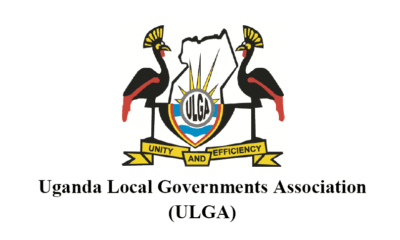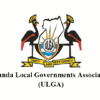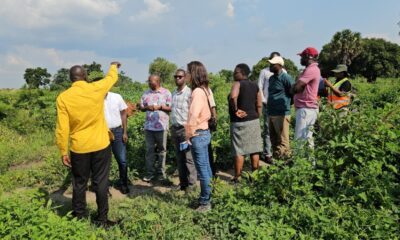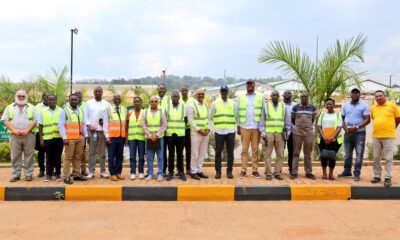Finance and Banking
Stanbic Bank Revolutionises Homeownership Dream for Ugandans with Groundbreaking Pre-Approved Mortgages
For countless working Ugandans, the aspiration of owning a decent home has long been overshadowed by the harsh realities of soaring construction costs, prohibitive interest rates, and a daunting mortgage application process. With over 60% of the urban population residing in informal settlements, the path to securing a place on the property ladder has often felt like an insurmountable climb for lower-middle-class earners.
However, Stanbic Bank Uganda, the nation’s largest commercial lender, is stepping in to dismantle these barriers with a bold and innovative move. In a strategic manoeuvre aligning with its ambition to become Uganda’s leading private bank by 2028, Stanbic has unveiled a first-of-its-kind pre-approved mortgage financing solution. This empowers existing clients with access to up to UGX 500 million without the encumbrance of the traditional, often lengthy, loan application process.
“Homeownership should not be a privilege reserved for a select few; it should be an attainable milestone for every hardworking Ugandan with a stable income,” asserts Damalie Kairumba, Head of Mortgage Finance at Stanbic Bank. “Through this groundbreaking innovation, we are actively removing the hurdles. If you are an existing client who banks with us and receives their salary or income through our systems, we can now proactively inform you of the home financing you qualify for.”
A Paradigm Shift in Mortgage Financing
This pre-approved mortgage model marks a significant departure from conventional banking practices in Uganda. By targeting both salaried and self-employed individuals who already have a banking relationship with Stanbic, the solution leverages existing customer banking history, income patterns, and crucial KYC (Know Your Customer) data to automate loan prequalification. This ingenious approach effectively bypasses the cumbersome paperwork, frustrating delays, and inherent guesswork traditionally associated with mortgage applications.
Eligible customers can leverage these pre-approved funds for a variety of crucial housing needs, including purchasing land or completed properties, initiating or finalising home construction projects, refinancing or consolidating existing loans, unlocking equity from existing property, or even acquiring land titles for ‘kibanja’ plots.
“Traditionally, the journey to owning a home has been perceived as intimidating and out of reach for many,” explains Israel Arinaitwe, Head of Personal Banking at Stanbic. “But by flipping the script–by pre-qualifying our valued customers and placing the power firmly in their hands–we are making the entire process more accessible, remarkably efficient, and ultimately, more dignified.”
Addressing Uganda’s Housing Crisis: Numbers That Speak Volumes
The urgency of this innovation is underscored by stark statistics. According to the Uganda Bureau of Statistics (UBOS), the nation grapples with a housing deficit exceeding 2.4 million units, a figure alarmingly projected to reach 3 million by 2030 if current trends persist. Regionally, East Africa’s urban population is expanding at an average annual rate of 4.5%, further intensifying the demand for affordable and quality housing solutions.
Compounding the challenge is the limited access to long-term mortgage financing. Many financial institutions struggle to offer long-term loans due to constraints in capital markets and a relatively low savings culture. Stanbic Bank’s proactive initiative represents a strategic and decisive step towards bridging this significant housing deficit.
With competitive interest rates starting as low as 16.5% for Ugandan Shilling loans and 9% for US Dollar loans, coupled with substantial loan amounts reaching up to UGX 3.7 billion (USD 1 million) and flexible repayment periods extending up to 25 years, Stanbic’s offering stands out as one of the most accessible and affordable in the current market.
Strategic Partnerships for Seamless Homeownership
Recognising that financing is just one piece of the puzzle, Stanbic Bank is actively forging partnerships with leading real estate developers to streamline the entire homeownership journey for their customers.
“We have established a strong collaborative relationship with Stanbic to simplify the entire experience – from the initial stage of property identification right through to securing the necessary financing. This is how we collectively turn dreams into tangible realities,” affirms Muffaddal Yeolawala of Universal Multipurpose Enterprises Limited, a key partner.
Echoing this sentiment, Sylvia Alal, Sales and Marketing Manager at Pearl Marina Estates Ltd, adds, “This level of financial innovation from Stanbic is precisely what Uganda’s housing sector has been yearning for. It empowers our prospective buyers with greater confidence, increased financial readiness, and a stronger impetus to invest in their long-term homes.”
The process for pre-qualified customers is remarkably streamlined. Once a customer identifies a property of interest, a valuation is conducted by a Stanbic-approved valuer. Following this, a formal written offer is issued, and upon the customer’s acceptance, the mortgage is registered, and funds are promptly disbursed. The overall turnaround time is largely dependent on the customer’s preparedness but can be as swift as 10 working days, encompassing the crucial mortgage registration phase.
Shortly, Stanbic Bank plans to extend the reach of this innovative offering by rolling it out on its digital platforms. This will enable eligible customers to initiate and complete the mortgage process conveniently from the comfort of their own homes or offices.
According to Arinaitwe, this groundbreaking initiative is a direct manifestation of the Bank’s overarching purpose: to drive Uganda’s inclusive and sustainable growth.
“We firmly believe that truly transforming lives begins with improving the places where people live,” he concluded, emphasising, “This solution transcends mere home financing; it is about restoring dignity, fostering the creation of generational wealth, and ultimately, shaping a more equitable and prosperous future for all Ugandans.”
Comments



























